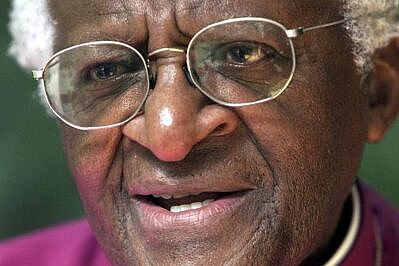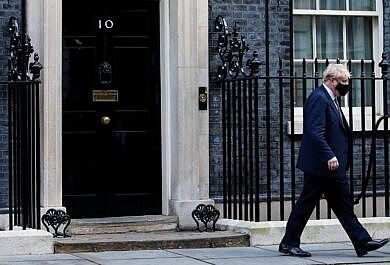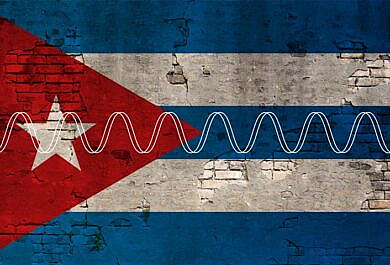Desmond Tutu preached non-violent means to end South Africa’s apartheid. He is being remembered around the world.
Summary
South African Desmond Tutu, Anglican Archbishop of Cape Town, died at the age of 90 Sunday.
- Tutu, the first Black bishop of Johannesburg, was a leading voice in South Africa’s movement to end apartheid.
- He was awarded the 1984 Nobel Peace Prize for his non-violent efforts opposing South Africa’s racial segregation.
- Archbishop Tutu was diagnosed with prostate cancer in the late 1990s and required hospitalization recently for infections “associated with his cancer treatment.”
- Reactions from leaders around the world have begun pouring in, including from Tutu’s friend the Dalai Lama who called him “a true humanitarian and a committed advocate of human rights.”
![]()
- CNN detailed Tutu’s biography and his winding trail towards the clergy, noting his statement “we begin always by making a political statement even without articulating it in words.”
- The Guardian is running a live feed of reactions from around the world to Tutu’s passing, nothing everyone from UK politicians to South African cricketers.
- The New York Times highlighted Tutu’s chairmanship of the Truth and Reconciliation Committee following the dismantling of apartheid in South Africa, and noted Tutu’s insistence for restorative rather than retributive justice.
![]()
- The Wall Street Journal’s coverage of Tutu’s life was more anecdotal than biographical, and recounted an instance in which the Archbishop interrupted his own speech to dive into the crowd and save the life of a man about to be necklaced.
- Fox News ran an Associated Press wire story that included a section on Tutu’s commitment to gay rights, quoting him as saying “I would refuse to go to a homophobic heaven.”
- The New York Post published a photo essay of Tutu’s life, with photos of him preaching as well as more lighthearted moments of him celebrating the opening of the 2010 World Cup in South Africa.
© Dallas Gerber, 2021






